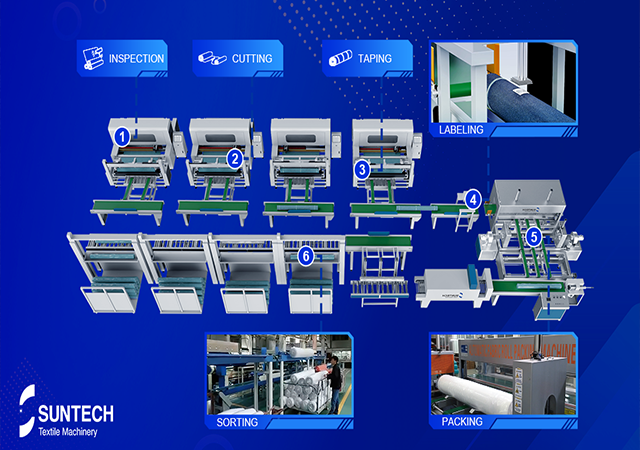Introduction
Bangladesh, often referred to as the "Textile Capital of the World," has firmly established itself as a global leader in the textile and garment industry. Over the past few decades, the country has experienced exponential growth in this sector, which remains a cornerstone of its economy. However, the industry faces several challenges that need addressing to sustain and enhance its growth trajectory. One promising avenue for improvement is the adoption of advanced technologies like the SUNTECH Automatic Packaging Machine.
Current Status of Bangladesh's Textile Sector
Growth and Contributions
Bangladesh's textile sector is a significant contributor to the country's GDP, accounting for approximately 11% of its total GDP and over 80% of export earnings. The industry provides employment to around 4 million people, the majority of whom are women. This sector's rapid growth can be attributed to several factors:
- Competitive Labor Costs: Bangladesh offers one of the lowest labor costs in the world, making it an attractive destination for global apparel brands.
- Large Workforce: The country boasts a large, skilled, and youthful workforce ready to meet the demands of the textile industry.
- Government Support: The Bangladeshi government has implemented various policies and incentives to promote the textile sector, including tax breaks, export incentives, and infrastructural improvements.
- Strategic Location: Proximity to major markets like the European Union and the United States allows for efficient shipping and reduced lead times.
Challenges
Despite its success, the textile sector in Bangladesh faces several challenges that could impede future growth:
- Sustainability Concerns: The industry has come under scrutiny for its environmental impact, including water pollution, high energy consumption, and waste generation.
- Worker Safety and Conditions: Ensuring safe and fair working conditions remains a critical issue, highlighted by past incidents like the Rana Plaza collapse.
- Technological Lag: Many textile factories still rely on outdated machinery and manual processes, which affect productivity, efficiency, and quality control.
Moving Forward with SUNTECH Automatic Packaging Machines
To address these challenges and propel the textile sector into a new era of efficiency and sustainability, adopting cutting-edge technologies like the SUNTECH Automatic Packaging Machine is crucial.

Advantages of SUNTECH Automatic Packaging Machines
- Enhanced Efficiency: These machines automate the packaging process, significantly reducing the time and labor required. This leads to faster production cycles and the ability to meet tight deadlines.
- Improved Accuracy: Automation ensures precision in packaging, minimizing errors and ensuring consistency in product quality.
- Cost Savings: By reducing manual labor and increasing production speed, companies can achieve substantial cost savings in the long run.
- Sustainability: SUNTECH machines are designed with energy efficiency in mind, reducing the overall environmental footprint of the packaging process.
- Worker Safety: Automating the packaging process reduces the risk of workplace injuries associated with manual handling and repetitive tasks.
Implementation Strategies
- Training and Skill Development: To successfully integrate SUNTECH Automatic Packaging Machines, it is essential to invest in training programs for workers. This will ensure they can operate and maintain the new equipment effectively.
- Government and Industry Collaboration: The government, industry associations, and private sector must collaborate to provide financial incentives and support for factories adopting advanced technologies.
- Infrastructure Upgrades: Modernizing factory infrastructure to accommodate new machinery is crucial. This includes updating electrical systems, creating space for new equipment, and ensuring robust internet connectivity for smart machines.
- Pilot Programs: Implementing pilot programs in select factories can help identify potential challenges and benefits, providing valuable insights before a wider rollout.
Conclusion
Bangladesh's textile sector stands at a crossroads, with the potential to further cement its position as a global leader. Embracing advanced technologies like the SUNTECH Automatic Packaging Machine can play a pivotal role in overcoming current challenges and driving sustainable growth. By focusing on efficiency, accuracy, cost savings, sustainability, and worker safety, the industry can ensure a prosperous future while maintaining its competitive edge on the global stage.




